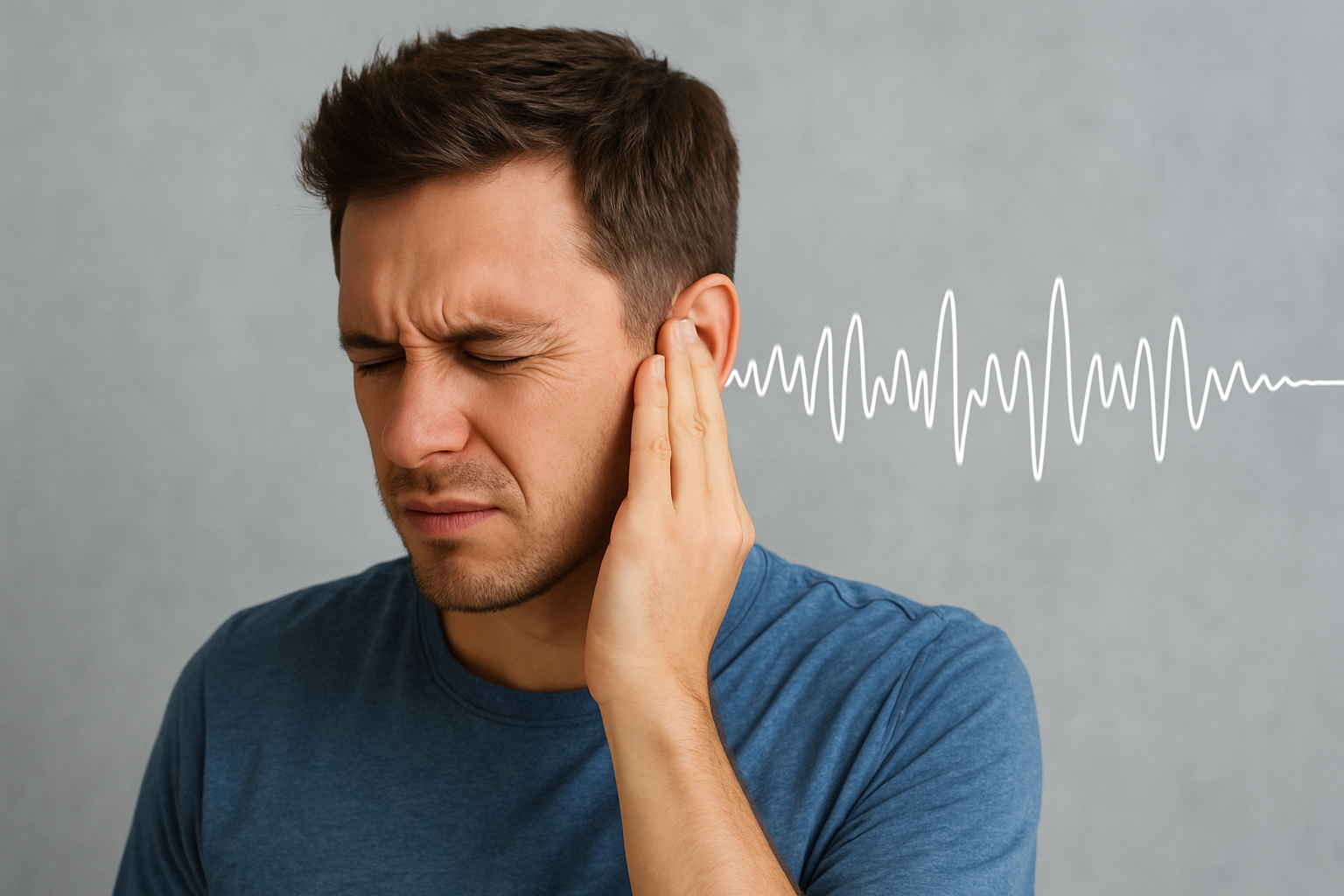Have you ever experienced a constant ringing, buzzing, or humming sound in your ears that no one else can hear? If yes, you’re not alone. This condition is known as Tinnitus, and it affects millions worldwide. While occasional ear ringing is common, persistent tinnitus could indicate an underlying ear or nerve issue that needs medical attention.
What Is Tinnitus?
Tinnitus isn’t a disease by itself—it’s a symptom of an underlying condition. It can affect one or both ears and may sound like ringing, hissing, whistling, roaring, or clicking. The intensity can vary from mild to severe and can interfere with concentration, sleep, and daily life.
Common Causes of Tinnitus
Tinnitus can be triggered by several ear-related and medical conditions, such as:
-
Prolonged Exposure to Loud Sounds
Continuous exposure to loud noise—like music, traffic, or machinery—can damage the sensitive hair cells in your inner ear, leading to tinnitus. -
Earwax Buildup
Blocked ear canals from wax can alter ear pressure and create ringing or buzzing sensations. -
Ear Infections or Eardrum Damage
Infections and injuries disrupt sound transmission and can irritate the auditory nerves. -
Age-Related Hearing Loss (Presbycusis)
Hearing declines naturally with age, and tinnitus is often a part of this process. -
Ototoxic Medications
Certain drugs (like high doses of aspirin, antibiotics, or chemotherapy) can cause tinnitus as a side effect. -
Underlying Health Conditions
Issues such as high blood pressure, thyroid problems, or temporomandibular joint (TMJ) disorders can contribute to tinnitus.
Symptoms of Tinnitus
While the sound perception is the main symptom, tinnitus can also lead to:
-
Difficulty focusing or hearing external sounds clearly
-
Sleep disturbances
-
Headaches and irritability
-
Dizziness or vertigo in severe cases
If these symptoms persist, it’s essential to consult an ENT specialist for evaluation and proper diagnosis.
Diagnosis: How an ENT Evaluates Tinnitus
Dr. Diptiman Baliarsingh uses a detailed approach to uncover the cause of tinnitus, which includes:
-
Hearing Tests (Audiometry) – to detect hearing loss levels.
-
Ear Examination (Otoscopy) – to check for wax or infection.
-
Imaging (CT/MRI) – to rule out inner ear or nerve issues in chronic cases.
-
Tinnitus Matching Tests – to measure pitch and volume of perceived sounds.
Latest ENT Treatments for Tinnitus
While there is no one-size-fits-all cure, modern ENT management can greatly reduce tinnitus intensity and its impact on your quality of life:
-
Earwax Removal – Relieves blockages causing buzzing sensations.
-
Medication Management – Treats infections or inflammation in the ear.
-
Sound Therapy & Masking Devices – Uses white noise or hearing aids to blend or reduce tinnitus perception.
-
Cognitive Behavioral Therapy (CBT) – Helps patients manage stress related to tinnitus.
-
Hearing Aids – Useful for tinnitus linked with hearing loss.
-
Lifestyle Adjustments – Avoid loud sounds, reduce caffeine, manage stress, and ensure good sleep hygiene.
When to See an ENT Specialist
You should seek medical help if you experience:
-
Sudden or one-sided tinnitus
-
Tinnitus with dizziness or hearing loss
-
Pulsating or rhythmic tinnitus (in sync with heartbeat)
These can signal underlying ear or vascular issues that need professional evaluation.
Conclusion
Tinnitus may feel frustrating, but you don’t have to live with it. With accurate diagnosis and personalized care, relief is possible.
At Dr. Diptiman ENT Clinic, we specialize in advanced tinnitus management using evidence-based treatments tailored to your specific needs.





